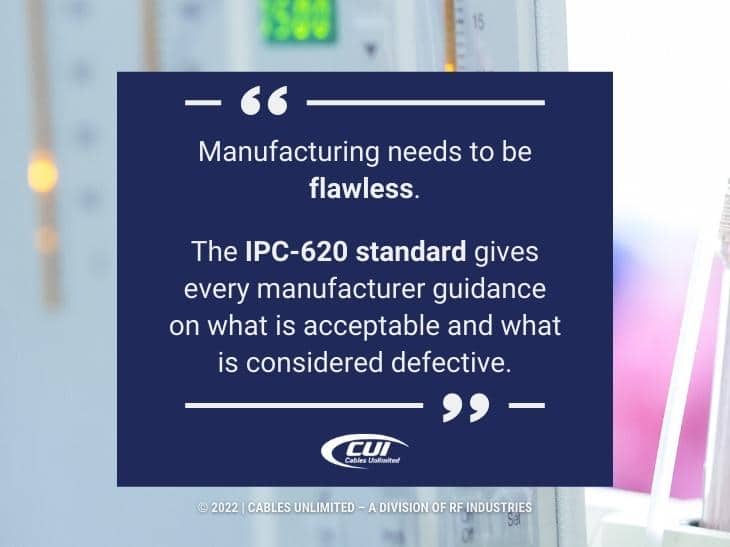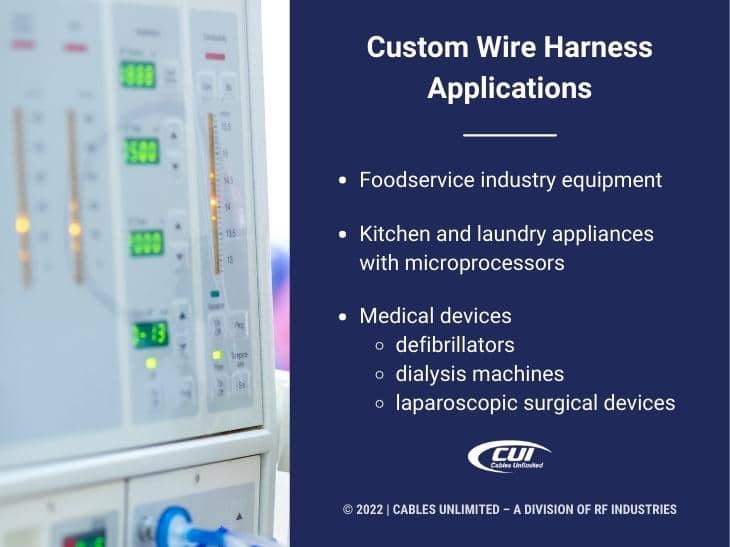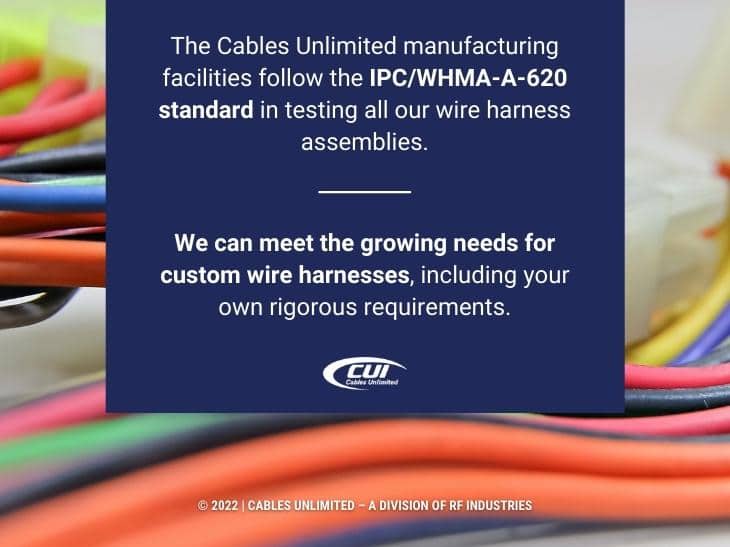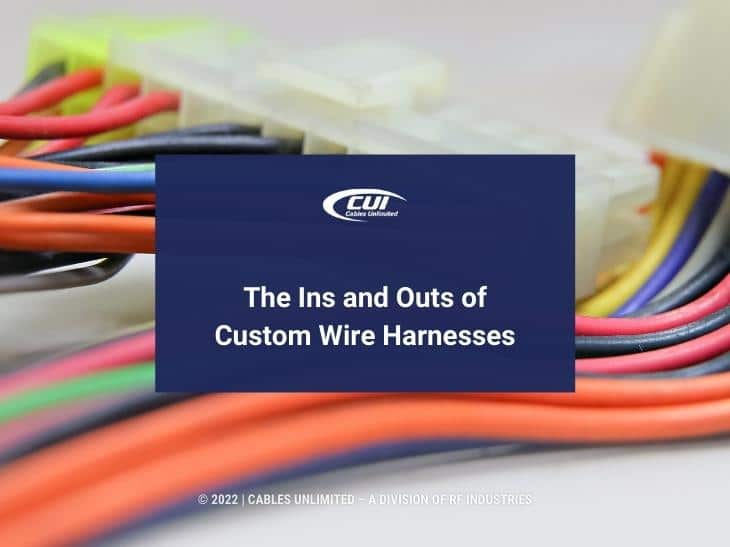As with most things in our world today, there are significant challenges with supply chain issues for cable manufacturing, particularly for custom wire harnesses. Not only that, but the demand for custom wire harnesses is growing at an impressive rate. This article addresses the market forecast and defines wire harnesses. It also covers their benefits and applications as well as manufacturing and testing requirements.
Custom Wire Harness Market Forecast
Transparency Market Research predicts that the global wire harness market will reach $191 billion by 2030. That’s a compound annual growth rate of approximately six percent. The significant drivers for this growth are medical devices, aerospace including satellites, food services, telecommunication, and automotive cables.
As just one example of where that demand is growing, a typical automobile requires thousands of wire harnesses with a total weight of more than 150 pounds. Hybrid and electric vehicles multiply these numbers. Imagine the number of harnesses needed for a military aircraft or a telecommunication satellite.

What Is a Custom Wire Harness?
A wire harness is an assembly with an integrated arrangement of multiple cables and wires within an insulating material. They maximize efficiency by binding wires together to produce a safe routing pattern. They use various wire management products such as tie wraps, PVC, loom tubing, and other sleeving components. They greatly simplify the wiring interconnections by providing an integrated drop-in installation.
Note that wire harnesses and cable assemblies are often confused with one another. A cable assembly typically has two ends. A wire harness has multiple breakouts running in many directions with several terminations on each breakout.
Custom Wire Harness Benefits
The significant benefit of wire harnesses is that they are pre-tested and ready to drop into place. This dramatically simplifies the assembly process of any product. The alternative is to run wires and cables one at a time throughout the device, hoping that every single one is correctly installed and connected. If you’ll pardon the pun, the custom wire harness essentially “short-circuits” this effort.
Custom Wire Harness Applications
The food service industry requires cabling for heating/warming equipment, slicers, mixers, etc. These harnesses have some very stringent requirements. Wire harnesses are also used in kitchen and laundry appliances where microprocessors are coming more and more into play and need to connect to motors, relays, and sensors.
Medical devices require wire harnesses that are durable, biocompatible, and highly reliable. As just one example, defibrillators need to function on demand without failure. Similarly, dialysis machines need to run flawlessly 24/7/365. Then there are laparoscopic surgical devices where life is in the balance, counting on the device to work correctly throughout a procedure and moving accurately to the micron level.
We’ve written before about the growing demand in the telecommunications industry as the 5G global infrastructure rapidly expands. That requires custom copper and fiber optic assemblies across the small cell networks placed on lampposts and nearly everything else to ensure seamless coverage throughout a city.
Not only that, but the transportation world is implementing wireless networks for Supply Chain 4.0 as they track shipments and reroute them as road conditions change or when a delivery destination changes at the last minute. That, too, requires custom wire harnesses throughout the network.

Manufacturing and Testing Requirements
From the list of applications above, you can tell that manufacturing needs to be flawless. The testing needs to be rigorous to ensure the harnesses work the first time and every time.
The IPC-620 standard gives every manufacturer guidance on what is acceptable and what is considered defective. Here are a few of the standard’s requirements and guidelines.
- Insulation crimp tabs fully wrap and support insulation. Insulation extends past the crimp tab. The insulation crimp needs to support the wrap insulation without causing any damage. Insulation should not have pinching, pulling, discoloration, or fraying signs.
- Broken insulation can expose wires and cause safety issues and potential hazards. The insulation crimp must provide a minimum side report of 180 degrees.
- Wires must be in reliable working condition, without scrapes, nicks, or other damage. Wires should not have any deformities, such as flattening, untwisting, buckling, or kinking.
- The connector retains the wire, and the crimp indent must be centered.
Our manufacturing facilities follow the IPC/WHMA-A-620 standard in testing all our wire harness assemblies. Our wire harness checklist includes the following:
- Accurate labeling and checking for defective wires and insulation.
- Continuity.
- Correct wire gauge and analyze crimps.
- Wiring is free of moisture and corrosion.
- Pull test and testing for broken wires and shorts.
That’s just a glimpse of the ins and outs of custom wire harnesses. We’re confident that we can meet the growing needs for custom wire harnesses, including your own rigorous requirements.

We Can Help
If your requirements are already specified and ready for a quote in your current projects, we are prepared to meet your deadlines and pricing targets. Our extensive in-house services and advanced manufacturing capabilities are in place to meet your requirements.
But Cables-Unlimited offers much more than state-of-the-art manufacturing – our dedicated team is also known for going to great lengths to meet the needs of our customers, including working round-the-clock to meet tight turnaround time requirements.
Our sales representatives are standing by to assist you with product questions and quotes Monday – Friday, 8:00 am to 5:00 pm Eastern. You can also send us an email or complete our contact form, and we’ll get right back to you.




